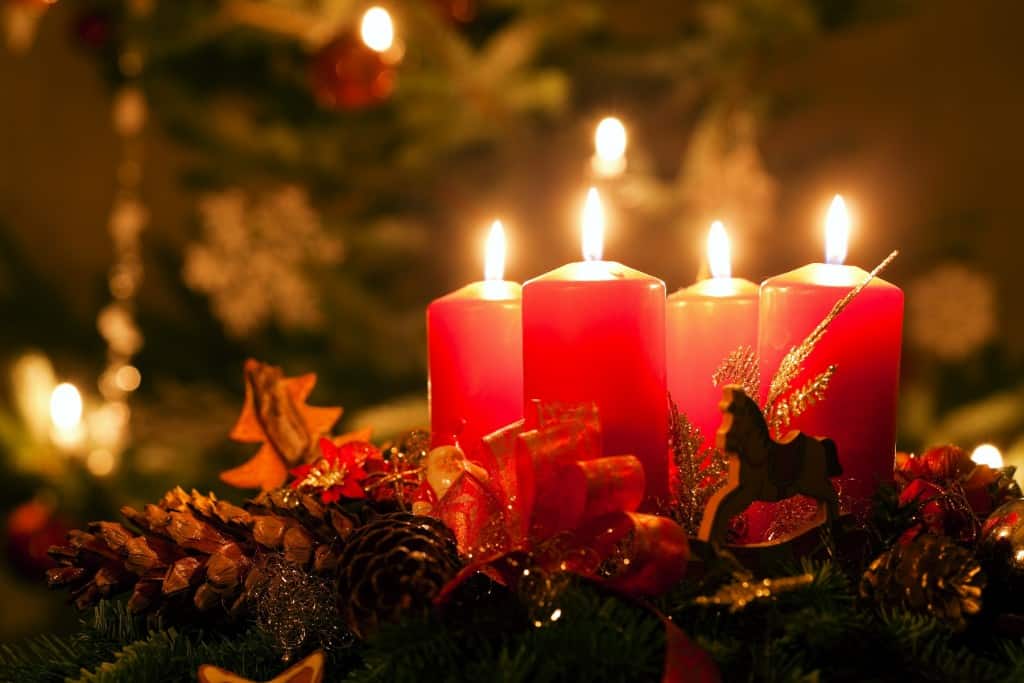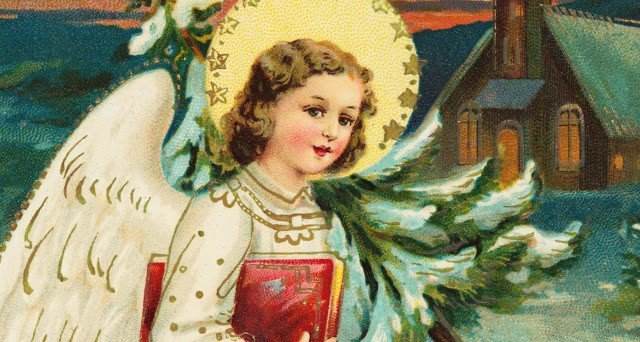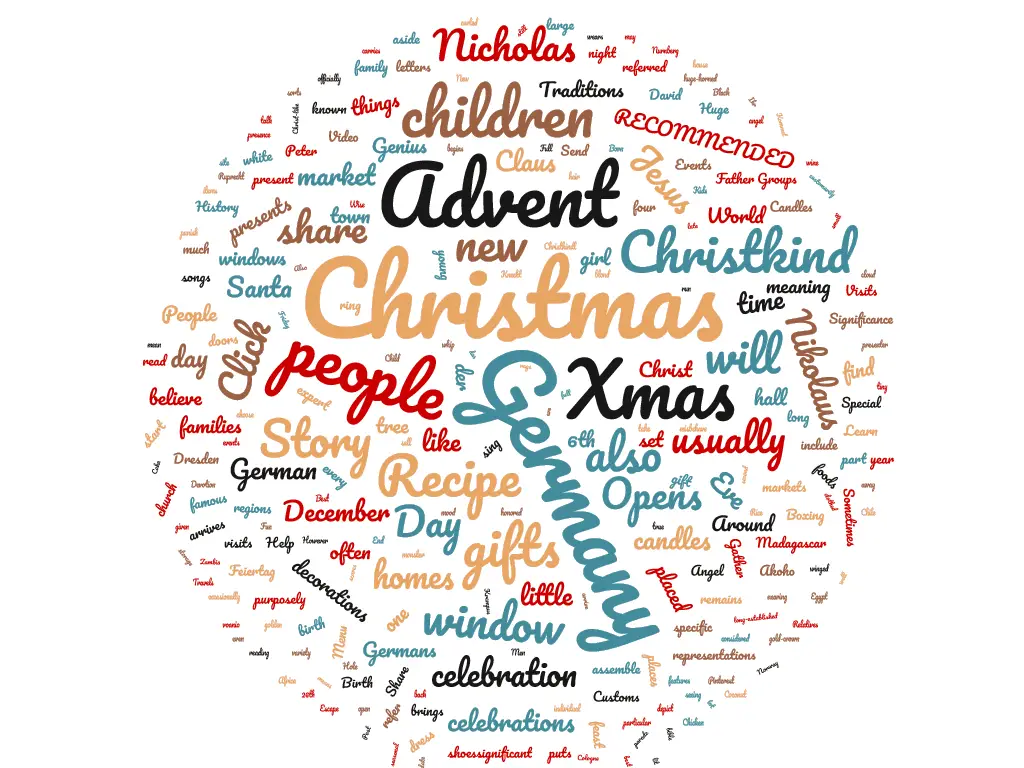In Germany, the late November’s Advent festivity marks the beginning of Christmas holiday celebrations. The Christmas season goes up to 6th January, which is time for Epiphany.
The eve of Christmas and the D-day itself are set aside as family celebration time. Families mingle and feast together while silently commemorating the birth of Jesus.
The Germans refer to Christmas day as; ‘Erste Feiertag,’ meaning the first celebration. 26th December is known as, ‘Zweite Feiertag,’ meaning the second celebration.
They also refer to Boxing Day as, ‘Zweiter Weihnachtsfeiertag,’. It is interesting to know how people wish Happy or Merry Christmas in other languages.
Christmas in Germany remains an essential family rite. As much as it is a Christian celebration to remember the birth of Jesus, even the non-believers honor this specific period.
Most of them will also attend church services at this time of the year.
Up to date, the German pyramids still symbolize Christmas. A lot of Christmas traditions in the world today originate from Germany.
They were also the initiators of Christmas tree representations in their homes as a representation of their faith in Christ.
The Eve of Christmas
On the Eve of Christmas, people assemble at the cathedral for sacred performances.
They would unveil the tree in their homes. In some regions of Germany, families assemble, read the bible, and sing Christmas carols cheerfully.
Some of the cherished popular songs include:
- Silent Night (Stille Nacht)
- Tannenbaum
- Ihr Kinderlein Kommet
Visiting most German homes during Christmas, you will find that their house windows contain wooden frames, surrounded with plastic-colored sheets.
There are electric candles placed in the windows as well.
Christmas Eve is set aside exclusively as a day for families to present gifts to one another. Besides, most people spend their evening hours in church services.
In the afternoons, families decorate the Christmas tree and feast on traditional Christmas foods. You will mostly find homes preparing mulled wine.
Additionally, Father Christmas or Santa Claus (der Weihnachtsmann) brings in the most important Christmas gifts.
In some parts of Germany, the adults write letters to Santa Claus, requesting specific presents.
Some believe that Santa Claus is responsible for Christmas gifting. Others consider the duty of presenting the gifts as specially ordained to the Christkind.
The Significance of the Advent
Just like in Austria, Advent is one of the most significant Christmas celebrations in Germany. There are various Advent calendars that the Germans use in their homes.
The Advent remains significant to the people. For almost 20 years now, Gengenbach’s quaint town modified its town hall into the world’s biggest Advent Calendar Room.
Usually, there are unique Christmas decorations placed on the 24 town hall windows. Each of the twenty-four decorations contains some presents in them.

The revealing of a new window happens every night until the day of Christmas.
Advent Kranz is a type of Advent calendar. It composes of a ring with fir branches. There are also four candles referred to as Advent candles and placed around the ring.
There are selected people who lit each of the four Advent candles at the start of every Advent week.
During the start of Advent, kids will place the letters at windowsills. They believe that the Christkind will pick them, read, and respond to their appeal by giving them the gifts during Christmas.
Events of St. Nicholas Day
St. Nicholas is known to be the saint patron of children. He offers little gifts to children, such as sweets, biscuits, and chocolates. St. Nicholas’s day in Germany is routinely on 6th December.
Nikolaus arrives at night between the 5th and 6th of December, dressed in a pure white robe, and carrying a book.
He puts gifts in children’s shoes and places them outside their doors.

In preparation for the arrival of Nicholas, children would clean up their rooms, polish their shoes and then wait at the door side or peep through the windowsill.
Some children would dress up like Nikolaus, to imitate him.
Sometimes, Nikolaus would knock on the doors. The children must then play an instrumental song, tell a beautiful story, or sing one of the usual Christmas songs for him.
Afterward, Nikolaus would present little gifts to the children.
In some regions of Germany, der Nikolaus would travel in the company of some people.
Sometimes, he arrives accompanied by Schwarzer Peter; a tiny individual also referred to as, ‘Black Peter.’ He carries a small whip.
He may also arrive with Krampus (Knecht Ruprecht) is a huge-horned monster, clothed in rags.
He visits purposely to punish children that misbehave. He scares little children who do run away on seeing him.
As much as der Nicholas visits the people in December, he is not considered to be part of the Christmas celebrations.
However, his events, and presents given by him to the children; set in the nearing Christmas mood.
The Christkind
In Germany, ‘das Christkind’ means ‘The Christ Child.’ He is the long-established and honored presenter of gifts to the people.
The Germans depict Christkindl as a young girl who has Christ-like features.

The German people believe that the presence of the Christkind is what brings the true meaning of Christmas.
In places like Nurnberg, the people choose a little girl each year to take part in a Christkind parade.
She customarily puts on a long, white and golden dress, with a long, curled and blond hair.
The young girl also wears a gold-crown, and occasionally winged like an angel.
On the Friday of Christmas market, before Advent begins, the Christkind will officially open the celebrations.
More Christmas Customs
Also, Germany is famous for its large Christmas markets that sell a variety of things.
At this particular time, you will find the market full of all sorts of foods, clothing, decorations, ornaments, and other items purposely for the seasonal celebration.
Dresden represents the oldest Christmas market in Germany.
It is well-known for its large Christmas pyramid that has representations of angels and nativity scenes.
Some of the best Christmas markets in Germany include:
- Nuremberg- German’s most famous Christmas market
- Hamburg- City hall
- Berlin- Potsdamer Platz
- Cologne
- Bremen
- Kassel
- Dresden
Learn More With the Help of Video
Main Points About Christmas in Germany
- Christmas decorations, especially Christmas trees are a big deal in Germany. Often secretly decorated by the mother of the house, the Christmas tree is brought in on Christmas eve.
- At Christmas time, there are different traditional Christmas markets where different foods and Christmas decorations are sold.
- Christmas celebrations begin on December 24 in Germany. On Christmas eve, many Germans exchange gifts with their families and loved ones.
- Stollen, carp or goose is served as the main Christmas meal.
- Christmas Day and Boxing day are the days when families and loved ones get together to celebrate over meals, music, and wine.
Conclusion
Germany is where the Advent Calendar, now used in many countries, was born, as well as the Christmas tree and the lighted star which decorated many windows and lights up December in all of Northern Europe.
There are several different types of advent calendars, the ones with only a picture for each day, the ones with chocolate and the ones that hold a little present in each and every one of the 24 boxes.
Word Cloud for Christmas in Germany
The following is a collection of the most used terms in this article on Christmas in Germany. This should help in recalling related terms as used in this article at a later stage for you.

- https://www.kids-world-travel-guide.com/christmas-in-germany.html
- https://www.europeanbestdestinations.com/christmas-markets/christmas-in-germany/
- https://www.deutschland.de/en/topic/life/how-germany-celebrates-christmas

The customs of St. Nicholas Day in Germany showcase a blend of playfulness and tradition, making for a festive and meaningful celebration.
The mix of lightheartedness and tradition in celebrating St. Nicholas Day is indeed a unique aspect of the German Christmas customs.
It’s intriguing to learn about the various customs and rituals that are a part of the German Christmas celebration.
It’s impressive how far back these traditions go, preserving historical and religious significance.
Yes, traditions that manage to endure through the centuries are indeed something remarkable.
I’m always captivated by the cultural depth of Christmas traditions in different regions, Germany being no exception.
I find the German traditions during the Advent season to be particularly fascinating. The attention to detail in their festivities is captivating.
Absolutely, the meticulousness with which they celebrate their customs is admirable.
The Advent Kranz and the unique Advent calendars showcase the thoughtfulness and care behind every tradition.
It’s intriguing to read about the folklore and characters associated with the German Christmas customs, adding an element of whimsy to the celebrations.
Yes, the presence of figures like the Nikolaus and Schwarzer Peter adds a charming and magical touch to the holiday traditions.
The meticulousness of German Christmas traditions is truly impressive. The level of dedication and symbolism is quite noteworthy.
Absolutely, the attention to detail in every aspect of their customs is what makes the German Christmas celebration stand out.
I’ve always found it fascinating to learn about the unique Christmas traditions celebrated in Germany
I completely agree. Their rich cultural traditions surrounding the holiday season are truly something to admire.
The German Christmas customs are deeply rooted in history and faith, making them all the more meaningful.
Yes, the blend of historical and religious elements creates a rich tapestry of traditions that define the German holiday season.
This article offers an insightful look into the detailed and cherished traditions of Christmas in Germany.
The integration of historical and religious elements in German Christmas traditions offers a unique perspective on the festive season.